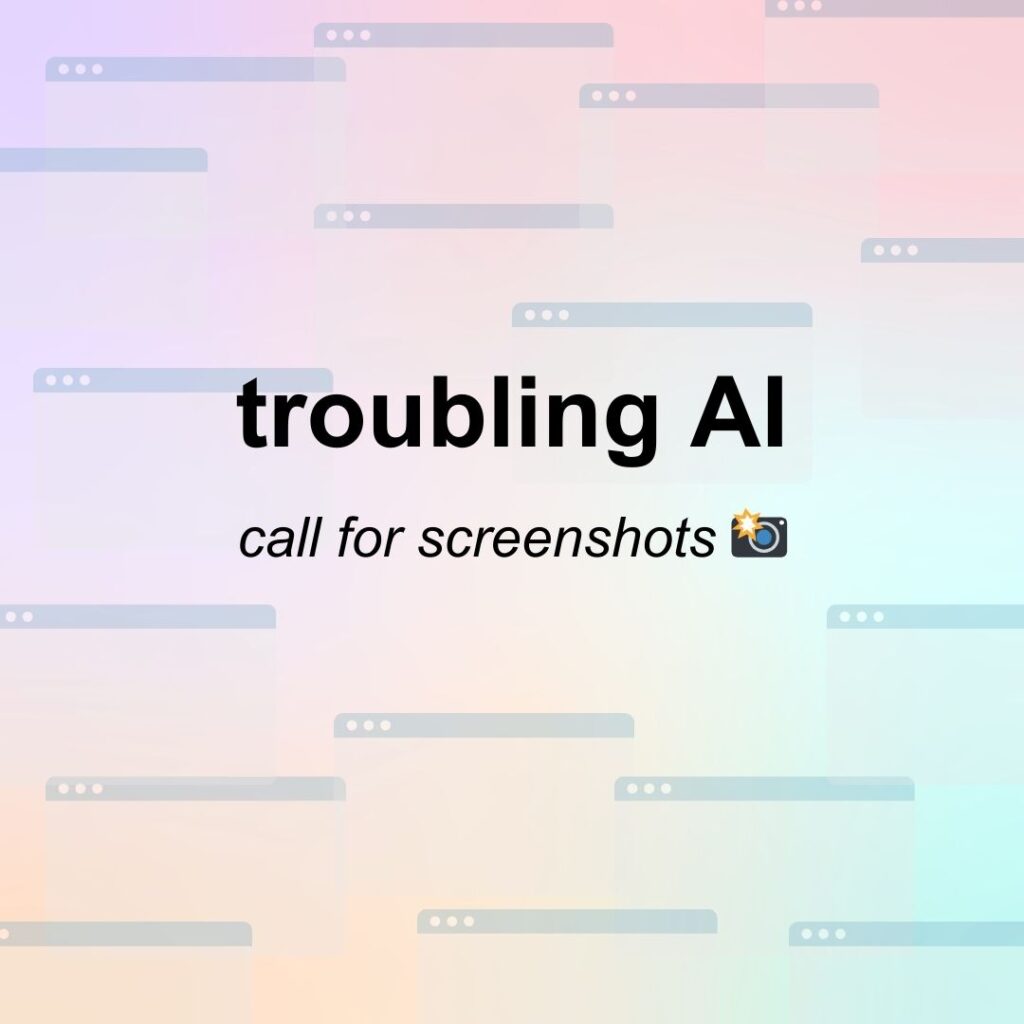
The annual Digital Methods Winter School in Amsterdam will take place on 6-10th January 2025 with the theme “Chatbots and LLMs for Internet Research?”. The deadline for applications is 9 December 2024. You can read more on this page (an excerpt from which is copied below).
Chatbots and LLMs for Internet Research? Digital Methods Winter School and Data Sprint 2025
https://wiki.digitalmethods.net/Dmi/WinterSchool2025
The Digital Methods Initiative (DMI), Amsterdam, is holding its annual Winter School on ‘Chatbots for Internet Research?’. The format is that of a (social media and web) data sprint, with tutorials as well as hands-on work for telling stories with data. There is also a programme of keynote speakers. It is intended for advanced Master’s students, PhD candidates and motivated scholars who would like to work on (and complete) a digital methods project in an intensive workshop setting. For a preview of what the event is like, you can view short video clips from previous editions of the School.Chatbots and LLMs for Internet Research? Towards a Reflexive ApproachPositions now are increasingly staked out in the debate concerning the application of chatbots and LLMs to social and cultural research. On the one hand there is the question of ‘automating’ methods and shifting some additional part of the epistemological burden to machines. On the other there is the rejoinder that chatbots may well be adequate research buddies, assisting with (among other things) burdensome and repetitive tasks such as coding and annotating data sets. They seem to be continually improving, or at least growing in size and apparent promise. Researcher experiences are now widely reported: chatbots have outperformed human coders, ‘understanding’ rather nuanced stance-taking language and correctly labeling it better than average coders. But other work has found that the LLM labeling also has the tendency to be bland, given how the filters and safety guardrails (particularly in US-based chatbots) tend to depoliticise or otherwise soften their responses. As researcher experience with LLMs becomes more widely reported, there are user guides and best practices designed to make LLM findings more robust. Models should be carefully chosen, persona’s should be well developed, prompting should be conversational and so forth. LLM critique is also developing apace, with (comparative) audits interrogating underlying discrimination and bias that are only papered over by filters. At this year’s Digital Methods Winter School we will explore these research practices with chatbots and LLMs for internet research, with an emphasis on bringing them together. How to deploy and critique chatbots and LLMs at the same time, in a form of reflexive usage?
Applications: Key Dates
There are rolling admissions and applications are now being accepted. To apply please send a letter of motivation, your CV, a headshot photo and a 100-word bio to winterschool [at] digitalmethods.net. Notifications of acceptance are sent within 2 weeks after application. Final deadline for applications is 9 December 2024. The full program and schedule of the Winter School are available by 19 December 2024.
The @digitalmethods.net Winter School in Amsterdam will take place on 6-10th January 2025 with the theme “Chatbots and LLMs for Internet Research?”. Apply by 9th December. 📝✨ publicdatalab.org/2024/11/29/d… #digitalmethods
— Public Data Lab (@publicdatalab.bsky.social) 5 December 2024 at 10:56
[image or embed]


